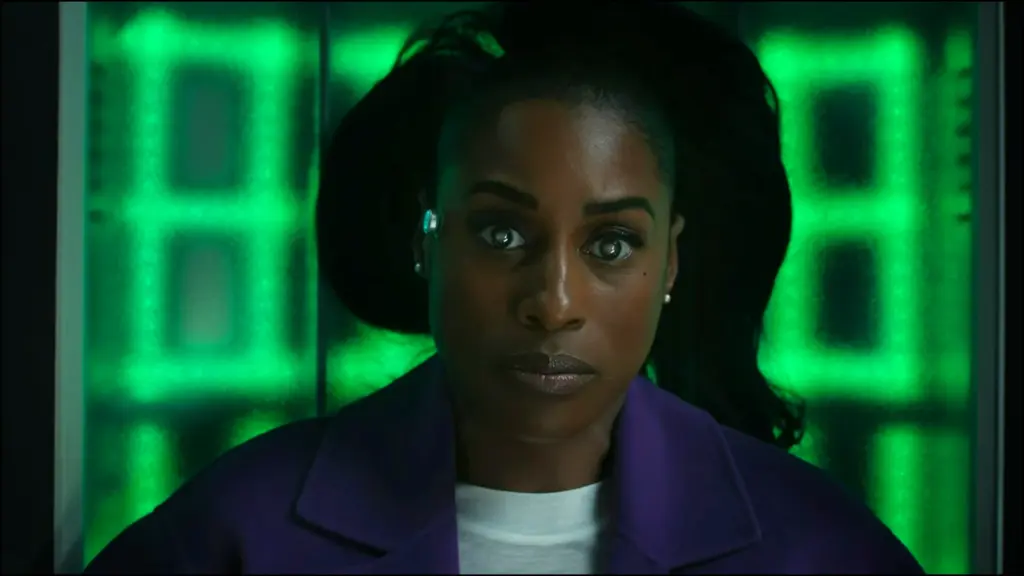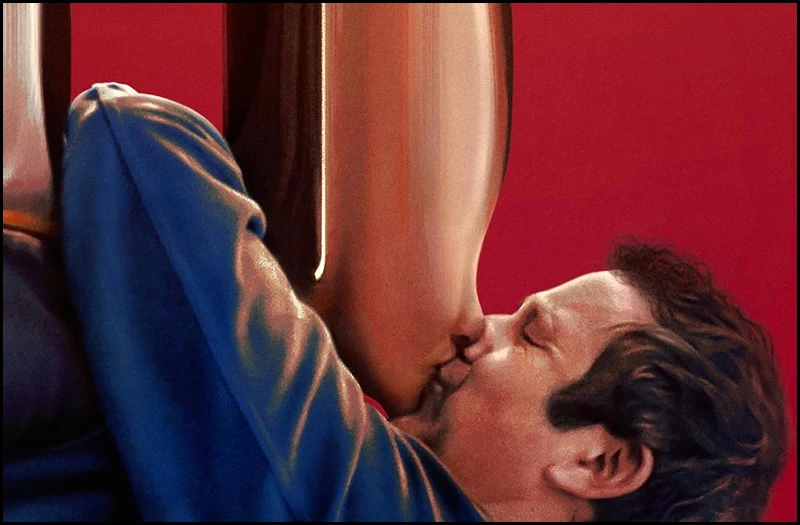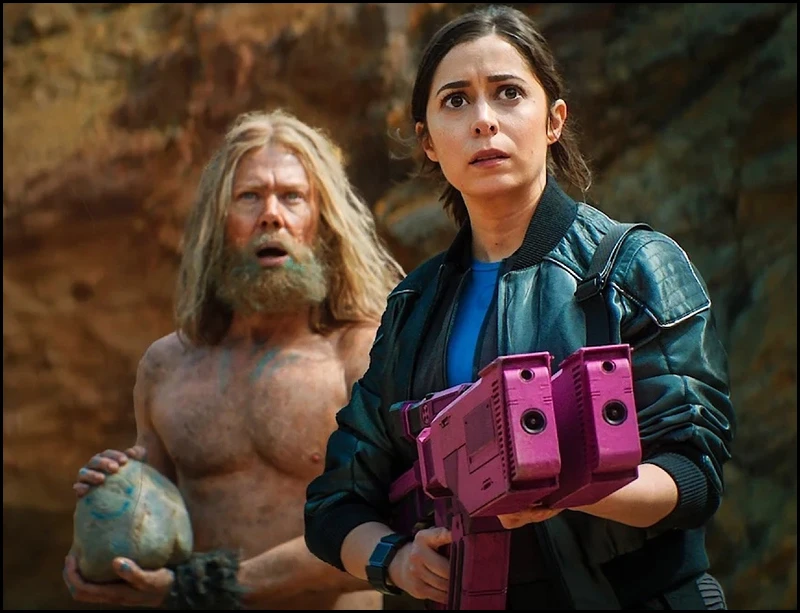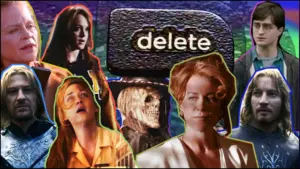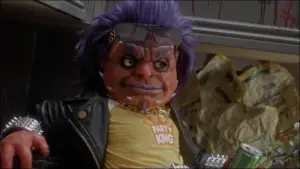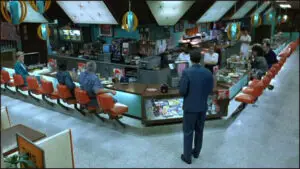A couple of weeks ago, Black Mirror season 7 — or I guess it’s called Series 7 — was released on Netflix, and it’s funny how quickly anticipation turns to hype turns to old news. The conversational windows for streaming-service shows open and close as if framed by banging shutters in a windstorm.
But dammit, Black Mirror is extraordinary. And Series 7 is as terrific as the rest, with welcome, fan-servicing callbacks to some of the previous seasons’ high points. Here are a few thoughts about each episode.
Before we start…
If you haven’t ever watched Black Mirror, the first thing you should know is: Whyaren’tyouimmediatelybingingeveryepisoderightnow?
The second thing you should know is that each episode is a stand-alone, like classic Twilight Zone episodes, which used their reality-bending gimmicks to explore human psychology. Black Mirror does the same with modern technology, amping its potency to see what chaos can result.
Part two of “the second thing you should know” is that Black Mirror goes to places few other shows do. Often those places are very dark, bleak, or cruel — not to rub our noses in negativity, like a sadistic horror movie, but in ways that feel aligned with the cynical world we actually live in.
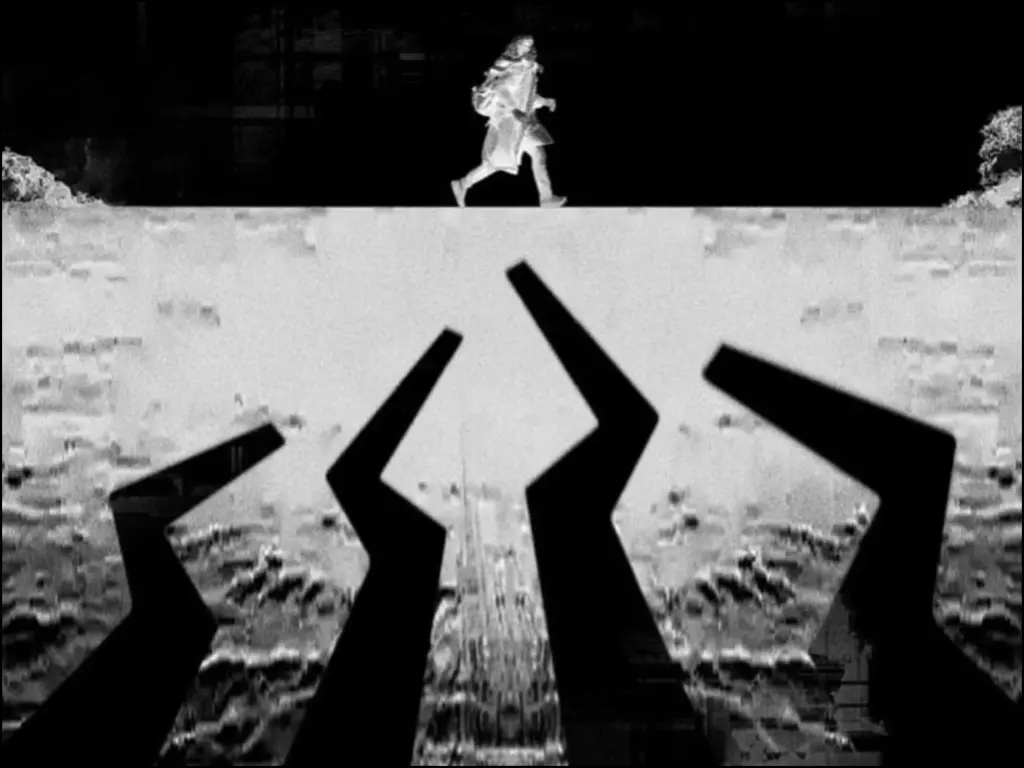
For example, Series 3 has an episode titled “Metalhead,” in which a robo-dog (deployed by an enemy nation?) chases humans through an abandoned rural area of England. The robo-dog has a gun that can assassinate people, and it also blasts shrapnel with tracking devices so it can find and finish those it has wounded. When the episode came out in 2017, it was frightening but still felt fantastical, reminding me of the robo-dog that tracks the protagonist of Ray Bradbury’s novel Fahrenheit 451. These days, reading about the variety of military drones being used in the Russian invasion of Ukraine, the episode feels all-too believable.
One of my other favorite episodes is 2011, “The Entire History of You,” which uses a single sci-fi element (eye implants that record everything) to plumb the depths of paranoia, betrayal and devastation a person goes through when their significant other cheats. I’ve never seen a more accurate on-screen representation of that pain, played out at each knife-twisting degree of awareness. The sci-fi premise is only a few levels of tech past current modes people use to un-Gaslight themselves.
Then there’s “Nosedive,” 2016’s brilliant take on social-media upvote/downvote systems. Starring Bryce Dallas Howard, the episode took the oxytocin-releasing thrill of online approval to just one level beyond reality, and the result is the sort of bad-to-worse drama (and inadvertent comedy — sometimes those go hand-in-hand) that does something “normal” shows simply can’t do without being preachy. It’s an incisive commentary that shows without telling — a quality Black Mirror usually maintains (with “Smithereens“ among the occasional missteps, though I liked how thoroughly Andrew Scott verbalized objections to the new tech order).
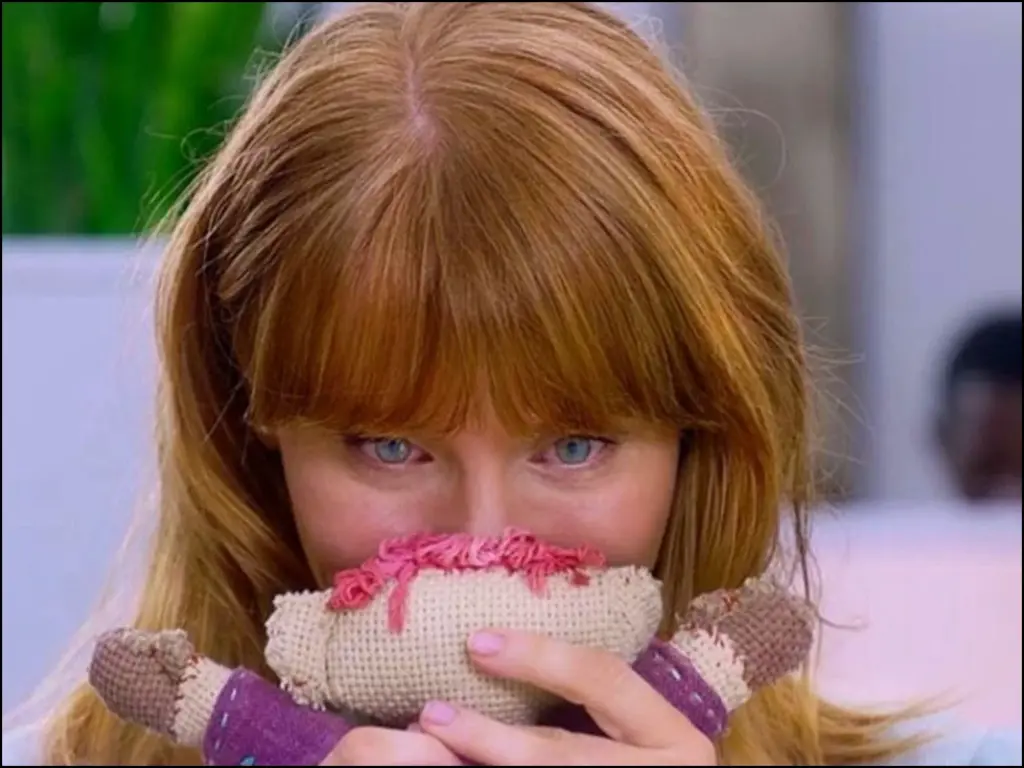
Throughout each season…er, “series,” Black Mirror slings one devastating scenario after another, then it surprises with something heartfelt. For instance, the complex premise of 2016’s “San Junipero,” starring Mackenzie Davis and Gugu Mbatha-Raw, starts off tapping nostalgia for the music and styles of previous decades, then unfurls one of the sweetest sapphic love stories since…Sappho, I guess.
Those who loved “San Junipero” also probably enjoyed “Be Right Back” (2013), Series 2’s wish-fulfillment love story (with unexpected shades of Wuthering Heights and Jane Eyre) starring Domhnall Gleeson. By this time, one wonders if Black Mirror wasn’t inspiring films, such as 2014’s Ex Machina (also starring Gleeson), directed by Alex Garland. Around this time, instead of “That’s an interesting science-fiction movie,” I found myself saying, “That movie is like a Black Mirror episode.”
That leads to the third thing I’ll say: Black Mirror shows the real power of the sci-fi genre. If you’re anti sci-fi, rethink your opinion! It’s not all escapism or geeky obsessions with the minutiae of Star Wars, Star Trek, and stacks of L. Ron Hubbard paperbacks with painted cover art depicting spacemen blasting humans, androids eating mutants, and sad-eyed aliens probing crying robots.
As our lives get washed away by technology like “generative AI” (also known as “unemployment-generative AI”), Black Mirror feels increasingly relevant. High-falutin’ people call it speculative fiction. Who are they kidding? Speculative, science, tomato, techno, potato, potato battery…
But “speculative” makes sense for many episodes, which freely toy with subject matter and expectations. Back in 2023 (which somehow feels like a decade ago), Series 6 had two episodes, “Mazey Day” and “Demon 79,” that unapologetically went supernatural. And were the better for it. “Mazey Day” stands as a potent commentary on paparazzi, and its concluding scene feels like a companion to Alex Garland’s Civil War.
Charlie Brooker, the show’s creator and main writer, has earned the freedom to break boundaries. It’s a great show, man.
Series 7 Episodes — Down the Line
If you hate spoilers, don’t read this. Go watch all the shows. They’re brilliant. (In years to come, people are going to look back on Black Mirror and talk about it as “the show that warned us.”) Then come back. You’ll probably disagree with half my takes, but at least I’m not ChatGPT. I’m a real person writing this. Which will become increasingly rare in a few years. Anyway —

